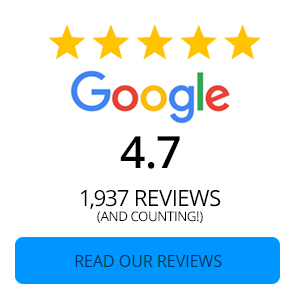Your credit score plays a big role in your financial life. It affects everything from getting approved for loans or apartments to scoring better interest rates. Maintaining a good credit score starts with good habits, but figuring out where to begin can be tough.
The good news? With a little know-how, you can learn how to establish and build credit, learn ways to build credit over time, and best of all, how to use your credit to your advantage.
Whether you're chasing 850 or starting your credit for the first time, Coosa Valley Credit Union is here to help. We offer low rates, flexible terms, and credit cards designed to help you build credit. Ready to take the next step? Give us a call and get pre-approved today!
What Is a Credit Score?
Your credit score is a three-digit number that shows how reliable you are when it comes to borrowing and repaying money. Lenders use it to decide if they should approve you for things like loans, credit cards, apartments, and mortgages.
Your score is based on your credit report and scores usually range from 300 to 850. The higher your score, the better your chances of getting approved with lower interest rates.
How your credit score is calculated
Your credit score is based on the information in your credit report, which is created by the three major credit bureaus — Equifax, Experian, and TransUnion. This report tracks your borrowing history, including loans, credit cards, and payment habits.
Elements that impact your score most include:
- Payment history - Do you pay on time?
- Amounts owed - How much debt are you carrying?
- Length of credit history - How long have you had credit?
- New credit - Have you applied for new accounts recently?
- Credit mix - What types of credit do you use (loans, cards, etc.)?
How to Build and Maintain a Strong Credit Score
Now that you know what a credit score is, let's talk about how to grow it and keep it healthy. With a few smart habits, you can build a strong score that opens doors to better financial opportunities.
Always pay on time
Paying your bills on time is one of the most important things you can do to build credit. In fact, payment history is the biggest factor in most credit scoring models.
Missed a payment? Don't worry — you can recover by getting current and staying consistent moving forward. To avoid late payments, try setting up automatic payments or calendar reminders. Even paying the minimum on credit cards helps keep your account in good standing and your score on track.
Let your credit history grow
The length of your credit history matters. The longer you've been responsibly managing credit, like paying loans and credit cards on time, the better it is for maintaining a good credit score. A solid, consistent track record gives lenders more confidence that you're a reliable borrower.
Keep your credit use low
Using too much of your available credit can hurt your score even if you're making payments on time. Credit scoring models look at how much of your total credit limit you're using, so it's smart to keep your balances low.
For example, if you have three credit cards each with a $10,000 limit and you owe $3,000 total, your utilization rate is 10%. Experts recommend keeping this below 30% to maintain a healthy score.
Avoid moving all your balances onto one card or closing unused accounts if it pushes your usage too high. And despite what you may have heard, you don't need to carry a balance to build credit. Paying off your full balance each month not only helps your score but it also saves you money on interest, too.
Keep steady payments on your debt
Your credit score considers not just how much you owe, but how you manage that debt, especially on revolving accounts like credit cards. For installment loans, such as mortgages or car loans, it looks at how much of the original loan balance remains unpaid.
Consistently paying down your balances not only lowers your credit utilization but also shows lenders you're responsible with credit. It's best to pay more than the minimum when you can and aim to pay off your full balance each month. This keeps interest costs low and helps you build a stronger credit profile over time.
Apply for credit only when you need it
Every time you apply for new credit, it can impact your credit score. Credit scoring models review your recent credit activity, and multiple applications in a short period may signal to lenders that you're in financial trouble or taking on too much risk. This can make them hesitant to approve new credit or offer favorable terms.
That's why it's important to be selective about when and why you apply for credit. Only seek new credit when it's necessary—whether it's to make a big purchase, consolidate debt, or build your credit history responsibly. Avoid "credit shopping" frequently, as too many hard inquiries can lower your score and raise red flags for lenders.
If you're rate shopping for things like a mortgage or auto loan, try to do it within a focused time frame (usually 14 to 45 days) so that multiple inquiries count as one. This way, you minimize the impact on your score while still finding the best deal.
Make Smart Credit Choices with Coosa Valley Credit Union
At Coosa Valley Credit Union, we offer some of Georgia's most trusted and rewarding credit cards designed to fit your needs.
Whether you have questions about your credit score or how to establish and build credit, give us a call today! Our team is here to help you and guide you every step of the way.

